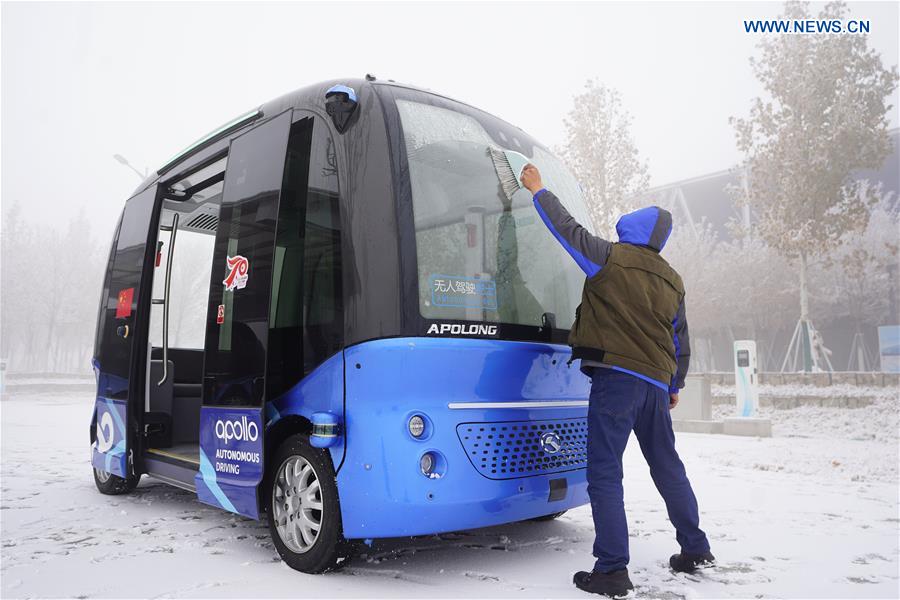
A worker cleans snow covered on a driverless bus in Xiong'an, north China's Hebei Province, Dec. 10, 2019. (Photo: Xinhua)
Beijing became the third first-tier city in China to allow public road tests of autonomous-driving vehicles carrying passengers after Guangzhou, and Shanghai, a move that industry insiders said could narrow China's gap with the US in the new technology.
The authorities imposed strict safety standards on companies intending to run autonomous-driving trials. Companies must provide each trial vehicle with 5 million yuan ($716,866) of liability insurance coverage, or make an equivalent compensation guarantee, according to Beijing's transportation authorities on Friday. The companies also need to make sure that vehicles can be switched from autopilot to manual mode at any time.
Beijing started opening test roads for autonomous driving in 2018. The new rule marks the first time that the capital is allowing on-road tests of autonomous-driving vehicles carrying passengers.
So far, 123 kilometers of roads have been opened for the tests, and a test area in Yizhuang, Beijing opened in June for closed area tests, media reports said. Two other closed test areas in Beijing's Haidian and Daxing districts are under construction.
The standardization of the autonomous-driving industry is essential before a launch of the business nationwide and it is a key step to narrow the gap with leading players such as the US, Zhang Zhiyong, founder of the Beijing-based car data service provider iwenfeng.cn, told the Global Times on Monday.
"There are still many uncertainties when it comes to allowing autonomous-driving vehicles onto public roads," Zhang said. "Currently China's standards on vehicle driving autonomy are unclear, and more specific regulations on safety and liability need to be rolled out."
According to Zhang, the US Department of Transportation has adopted six levels of automation, ranging from zero to full autonomy, as defined by the Society of Automotive Engineers.
In the US, there were more than 1,400 autonomous vehicles on the road as of June, according to a report by techcrunch.com, and more than 80 companies are running tests in 36 US states.
However, Chinese cities' efforts in autonomous driving are going strong, according to Zhang. Prior to Beijing, several cities ran tests of such vehicles.
Guangzhou, capital of South China's Guangdong Province, introduced its regulations for autonomous-driving tests in April 2018.


